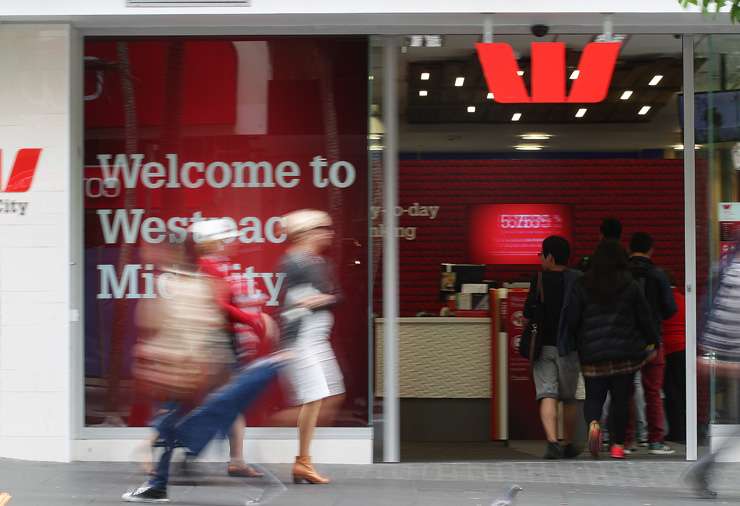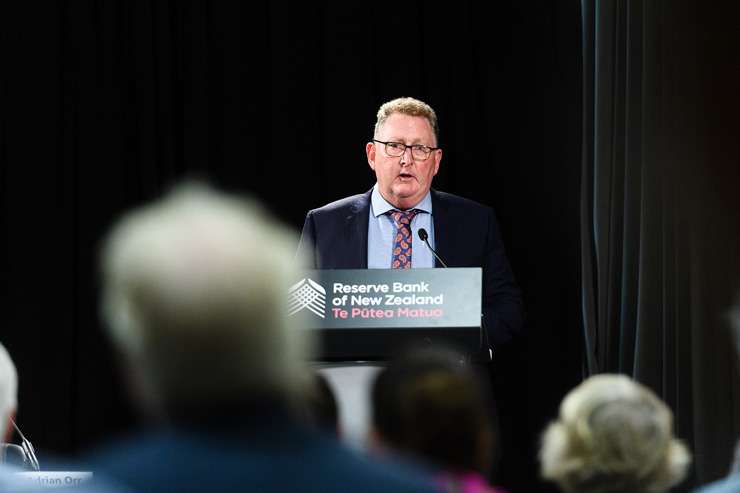Shock predictions of higher than expected interest rates are unlikely to cause house prices to fall further, say economists. Although not all agree.
Just a day after Westpac was forecasting a cash rate peak of 5.5% in its weekly economics statement (and assuring New Zealanders that the Budget didn’t pose a risk to rates), the bank's chief economist made waves with his prediction that the cash rate would hit a high of 6%, and was unlikely to start falling until the second half of 2024.
Kelly Eckhold’s forecast was based on the strength of the recent immigration numbers and the challenge the Reserve Bank of New Zealand (RBNZ) faces in bringing inflation, currently running at 6.7%, back to its target rate of between 1% and 3%.
Inflation “has already been outside the target range almost two years, and our projections indicate it’s going to take another 18 months to get inflation back within the band”, Eckhold wrote in his economic report, published this week.
Start your property search
He said: “It’s less likely now that we’ll see the economy tip into outright recession, and the house price cycle looks to have bottomed out sooner than expected."
The RBNZ is set to make its next decision on the OCR on May 24. Many expect it will raise the cash rate 0.25 percentage points to 5.5%. The consensus among economists until this week had been that OCR would peak at 5.5%, but Eckhold's prediction of 6% has led to a flurry of revised forecasts from other bank economists.
ANZ economists Sharon Zollner and David Croy wrote that they expect a 25bp hike on May 24, and another 25bp hike in July, citing strong immigration numbers as the reason for their revised forecast.
Inflows of new migrants exceeded departures by 65,000 in the year to March 2023 and in recent months have been running at a pace equivalent to 100,000 net additional people per year. Increased migration has a potential to push inflation up, but OCR rises are designed to quell spending.
Neither Westpac nor ANZ believe a higher OCR peak will affect house prices.
“The housing market is already showing signs of life and immigrants add to housing demand,” ANZ’s Zollner and Croy wrote. They argue that house prices could in fact bottom out earlier than they previously predicted.
Eckhold expects that rising population growth will lead to increased housing demand, and that combined with lower long-term mortgage rates is likely to put a brake on house price declines.
Read more:
- Bargain cities: Where first-home buyer prices have dropped the most
- The get rich quick myth: How property investors really make their money
- House no first-home buyer would touch sells for $400,000
Kiwibank chief economist Jarrod Kerr doesn’t believe the OCR will peak as high as the other two banks predict. If it did, however, he anticipates it would put further downward pressure on house prices.
“I think it would make the decline in house prices deeper and more prolonged,” says Kerr. “The higher the cash rate goes, the more of a downward influence it has on house prices.”
Kiwibank’s economists are not expecting that will happen. They anticipate that house prices, which have fallen nearly 18% since the peak, will bottom out at 20% below the peak. They see the rate of decline slowing currently and expect green shoots emerging in the warmer months later in the year.
Kerr doesn't think a 6% OCR peak is likely but concedes it’s “definitely possible”. “But it's not likely in my opinion. We've seen a lot of the key data points turning in a way that supports the Reserve Bank's idea that the economy is cooling quite quickly. Don’t forget the lags in monetary policy are nine to 24 months long.”
BNZ’s head of research Stephen Toplis doesn’t rule out the OCR going higher than the consensus 5.5% either. But 5.75% or 6% isn’t going to materially affect house prices because it’s only one lever, says Toplis.

Westpac chief economist Kelly Eckhold predicts the OCR will hit a peak of 6%. Photo / Supplied
“The most important thing to recognise is that it depends on why [the OCR] rises. If everything was exactly as it is now, net migration didn’t cause any extra pressure, and the cash rate was to go to 6%, then unequivocally that would likely result in further weakness in house prices.” However he expects that pressure from the OCR rises would be offset by increased demand in housing from migrants.
Toplis adds that whether the OCR peaks at 5.5%, 5.75% or 6% is marginal considering it has come from 0.25% in 2020/2021.
In an indirect comment on rival banks’ new higher OCR predictions, Toplis said in the BNZ Economy Watch on May 17: “Some commentators seem to have focused more on this side of the balance sheet and now see the cash rate headed significantly higher in a bid to offset the extra inflationary pressure generated. Such an outcome should not be ruled out but we are not convinced that we know enough yet to see that as a central scenario.” He questioned how permanent the current surge in net migration might be.
ASB’s economists are in the camp of house prices being in a phase of stabilisation currently. In fact the economists have revised their forecast for house price falls from peak to trough to -17% from -21%, with prices expected to bottom out this year.
“The market looks to be finding a floor earlier than anticipated and both near-term and medium-term indicators are looking more favourable,” chief economist Nick Tuffley and graduate economist Johnny English wrote.

Reserve Bank Governor Adrian Orr has stated that curbing inflation is his key priority. Photo / Getty Images
“On the whole, high population growth/strong migration, constrained housing supply and a pause from the RBNZ, followed by cuts in 2024, should be a potent combo for house prices. We caution the outlook remains highly uncertain with the housing market still vulnerable to headwinds.” they wrote.
The ASB economists are predicting a 25bp OCR hike next week, with the OCR then on hold at 5.5% until the second quarter of 2024. From then, they expect that the OCR will be trimmed gradually to 3% by mid-2025.
Even if the OCR does peak at 5.75% or 6%, it’s likely not all of that rise will be passed onto homeowners who have mortgages, says Jarrod Kirkland, national manager mortgages at Mortgage Lab.
With new mortgage borrowers hard to come by, the banks are keen to land more business, says Kirkland. “I don’t think it’s going to get passed on to mortgages if it went to 6%. BNZ have dropped their rates today [May 17] in an environment where the official cash rate is going up. They’re not passing on the full cost [of OCR rises].”
The same thing happened earlier this year. Only a portion of OCR rises were passed onto mortgage holders by banks, he says.
“[Theoretically] we could end up in the situation where they might pass some of it on due to the cost of funding. But with the pressure of competition between the banks in terms of trying to win business they [might say] ‘we’re going to take a little bit of a hit on the pocket because we’re still trying to attract people to actually lend to’. That’s my gut feeling.”
Use the search field to find out the best mortgage deals available today.















































































